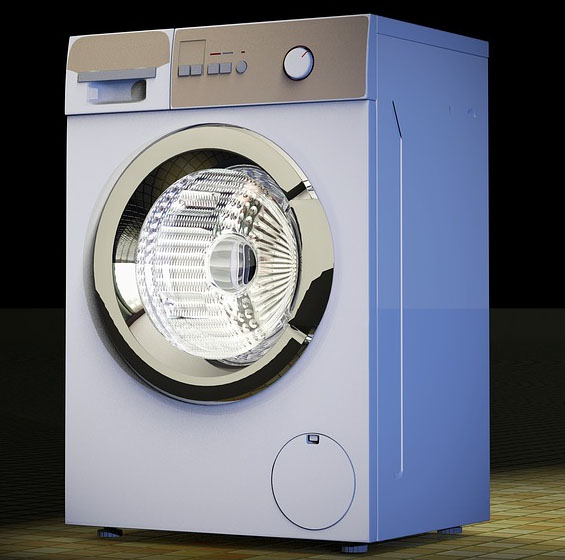Have you ever questioned a washing machine’s weight? Consider this if you need to move a washing machine to a new house or set up a washing machine on a shaky floor. If the machine is too loaded down with clothes, water, and other items, the floor may give way beneath it.
The safest method for moving the large machine must also be known, as must the need for additional help. A washing machine’s weight is the subject of today’s discussion.
Average Washing Machine Weight
Capacity
Every washer and dryer has a capacity that is measured in cubic feet. This figure indicates how much laundry the machine can handle in a single load.
Since they must accommodate an entire load of laundry in addition to having room for hot air to circulate, dryers require even more capacity than washers.
Washer and dryer sets are frequently sold, so you won’t typically need to worry about the sizes of the two appliances matching up, unless you’re only purchasing one at a time.
You can compare the weight of various washers and dryers with just 2 by looking at the chart above, which lists a variety of washers and dryers.2 cubic feet of capacity, all the way up to 7.5 cubic feet.
Washer-Dryer Combos
Washer-dryer combos are appliances that wash and dry your clothes all in one machine.
They are particularly common in Europe and Asia and are frequently used in studio apartments and lofts. The fact that they are small and can fit in tight spaces is obviously to their advantage. But even though they are smaller, they weigh 50 pounds more than top-loading washing machines (185 vs. 135 lbs.) on average.
Laundry Centers
In a laundry center, the washer and dryer are typically stacked vertically, bottom to top.
Similar to washer-dryer combos, these appliances are made for smaller homes, apartments, and condos that lack the space for two separate washer and dryer units.
Laundry centers typically have a smaller cubic foot capacity, but they are much heavier (238 pounds on average) due to the attachment of two appliances.
The Weight Of A Washing Machine
The type and model of the washing machine determine everything. A standard top-loading washing machine can weigh anywhere from 150 to 250 pounds (68 to 113 kg). Front-loading washing machines, on the other hand, typically weigh more, ranging from 200 to 350 pounds (91 to 159 kg). The size of a washing machine also has an impact on its weight. A large washing machine may weigh more than a small one.
How Many Kilograms Does A Washing Machine Weigh?
The average washing machine usually weighs around 60-90 kg. The most popular models typically weigh about 70 kg.
Depending on the capacity of the machine’s drum and whether or not they contain concrete, some washers can actually weigh more than 110 kg. You’ll see measurements like 7 kg, 8 kg, and 9 kg when you purchase a washing machine. Instead of the washing machine’s actual weight, this is referring to the load capacity or the weight of dry clothes that can be placed inside.
How Much Weighs A Water-use Washing Machine?
A washing machine is big and heavy. The washing machine gets much heavier when you add water to it. Water weighs about 8 pounds per gallon.3 pounds.
Therefore, a traditional washing machine that uses 40 gallons of water would gain 332 pounds in weight. Without taking into account the additional weight of the clothing itself, it weighs about 467 pounds. The combined weight could reach 485 pounds once the laundry is added.
Around 27 gallons of water will be used by a new standard top-load washing machine. It adds 225 pounds to its weight. The average new top-load washing machine weighs about 360 pounds when it is filled with water.
The new front load high-efficiency washers, on the other hand, might only require 14 gallons of water to complete a cycle of laundry. It only puts on 117 pounds more weight. The weight of a typical front-load washing machine when it is full of water is only about 322 pounds.

How Much Does A Washing Load Weigh?
A top loader washing machine typically weighs between 100 and 150 pounds. It will weigh a little less if your washing machine is front loading. Your washing machine’s weight can change depending on its size and model. Naturally, heavier machines will weigh more than lighter ones.
Why The Weight Of Washing Machines Is Heavy
There are several reasons why washing machines are heavy. A lightweight machine can’t handle the pressure of the washing cycle. In order to prevent a washing machine from starting to jive across your laundry room floor during the spin cycle, weight is therefore required.
To maintain balance and control movement, concrete counterweights are placed inside washing machines. These counterweights have a maximum weight of 55 pounds.
You may have noticed how heavy a washing machine is if you’ve ever attempted to move one. When a washing machine is in the spin cycle, a concrete block is placed inside to help stabilize it.
Heavy parts make up washing machines. A washing machine, for instance, has an inner tub and an outer tub, both made of heavy steel. Additionally, there is the metal gearbox, the motor, and the sturdy metal frame that surrounds the washing machine. These components combine to create a machine that is incredibly heavy.
How Much is a Washer Dryer’s Weight?
The typical capacity of a tumble dryer in the UK is between 6kg and 10kg for a drying cycle. Even though the majority of reviews out there generally don’t suggest washer-dryer single-unit combos, primarily because of how long the drying cycle takes, there are some situations in which they are necessary. If you’re really limited on space, you might choose a less effective option over having no option at all.
Combo units that are dependable and well-made typically cost more but wash quite well. Their effectiveness is hampered by the drying time.
How much do they weigh though? Ten models from the top 5 brands were compared. Weights ranged from 150 to 220 pounds. They are surprisingly heavy for their smaller size. In general, washer-dryer combo units can weigh up to 20% more than their equivalent-sized single-purpose counterparts.
This is what we would anticipate given that the combo unit must house both the features and parts of a washer and a dryer.
Read More: How Long Does a Washing Machine Take to Wash & Dry Clothes?
Tips For Moving A Washing Machine
What to expect when you have to move your washer depends in part on its weight. Think about at least a few other essential duties and requirements, in addition to unplugging it and draining the machine’s hoses:
- Install the washer’s shipping rod or locking kit, which comes with bolts to keep crucial moving parts still and minimize the risk of damage.
- Straps should be used to secure the machine as you move it with a moving dolly.
- As you move the heavy washer up or down a ramp on a moving truck, stay on the high side of the dolly and follow the machine down for safety. When gravity is at play, your washing machine will feel even heavier.
Final Thoughts
Depending on the capacity and manufacturer, washing machines can weigh differently. Lighter washing machines are more dependable, quieter, and portable.
Always remember to consider the weight parameters when looking for a washing machine so that you are certain of what you are getting into. You can decide if it is a good fit for your home by looking at the size and specifications. Finally, when selecting a washer, always add one or two pounds to your original weight requirement.
If you have other problems with washing machines, welcome to check the following guides!
- How to Use Bleach In Your Washing Machine – Is It Safe to Use
- Can You Transport A Washing Machine On Its Side When Moving?
- How to Reset Electrolux Washing Machine With Easy Methods
- Can You Add An Agitator To A Washing Machine – How to Use
- How To Break Into Car Wash Change Machines In Simple Ways?
- How Can I Find Lost Items in the Washing Machine
- How To Install & Vent A Washing Machine Drain Pipe
- How to Reset Your Whirlpool Washing Machine? So Easy!
- How to Level a Washing Machine – Find The Perfect Level
- How to Clean a Smelly Washing Machine – Hacks & Tips
- How To Remove Mold From Rubber Seal Of Washing Machine?
- How Long Does a Washing Machine Take to Wash & Dry Clothes?
- Do Converse Shoes Well in a Washing Machine?
- How To Wash A Hat In The Washing Machine? Something You Should Know
- How to Clean Mold from a Washing Machine With Tips
- How to Level a Washing Machine? Step by Step Guide
- Can You Put Crocs In The Washing Machine? You Need Know
- How To Vent A Washing Machine Drain Pipe With Easy Steps











